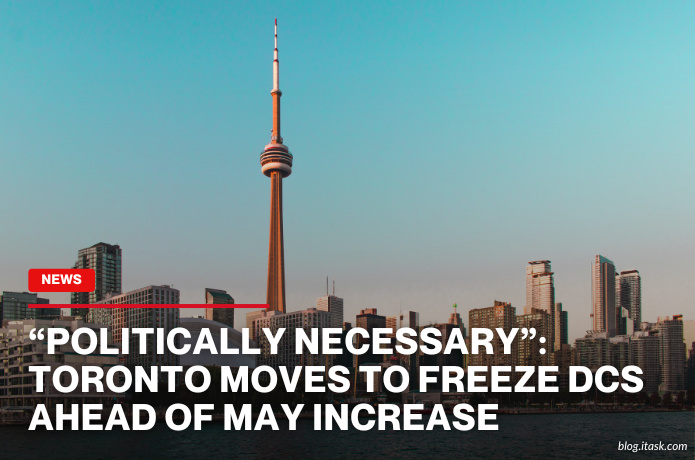“Politically Necessary”: Toronto Moves To Freeze DCs Ahead Of May Increase
“Politically Necessary”: Toronto Moves To Freeze DCs Ahead Of May Increase

Toronto City Council has voted to freeze development charges (DCs) at current levels, halting a planned 4% increase that was set to take effect on May 1. The move, approved by an 18-2 vote, aims to provide relief to developers and homebuyers amid soaring housing costs and a slowdown in new construction.
Development charges are fees collected by the city from developers to fund infrastructure like roads, water systems, and parks needed for new housing. Over the past 15 years, these fees have risen sharply. For example, the DC for a one-bedroom condo increased from $4,985 in 2009 to $52,676 in 2024. Two-bedroom units saw similar hikes, jumping from $8,021 to $80,690 in the same period .
The freeze allows the city's Chief Financial Officer to use Section 27 agreements to lock in current DC rates for new housing projects until a comprehensive review is completed and a new bylaw is adopted. However, this measure is contingent on the Province of Ontario not responding to Toronto's request to waive the requirement for annual indexing of DCs .
Matthew Young, President and CEO of Republic Developments and Chair of the Coalition Against New-Home Taxes (CANT), criticized the high DCs, stating they contribute significantly to Toronto's housing affordability crisis. "Freezing development charges is better than increasing them, but let's not confuse the issue: development charges are already far too high," Young said. He emphasized that more proactive measures are needed to reduce or eliminate these charges to alleviate the burden on homebuyers .
The city acknowledges that DCs are a vital source of funding for infrastructure projects. Toronto's 10-year capital plan includes $6.5 billion from DCs, allocated to essential services such as water, wastewater, road upgrades, parks, community centres, and transit systems. These funds are crucial for supporting new communities and expanding public transit options like the Eglinton East and Waterfront East light-rail transit projects .
While the freeze offers temporary relief, it does not address the underlying issue of escalating development costs. Housing advocates and industry leaders argue that without substantial reforms, including potential reductions in DCs, the city's housing affordability challenges will persist. The Council's decision is seen as a politically necessary step, but many believe more comprehensive actions are required to make housing more accessible for Toronto residents.
